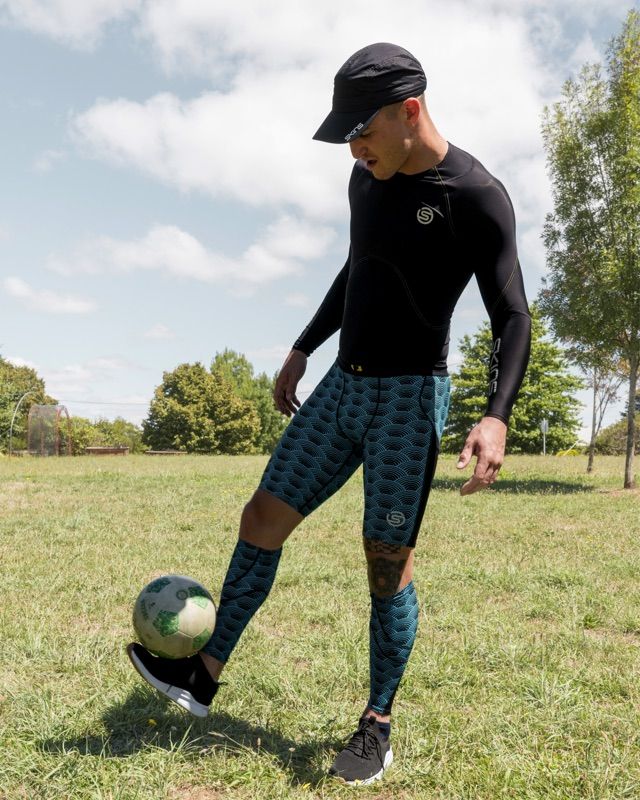COACH JOSHUA: THE MARATHON - SPORT'S ULTIMATE CHALLENGE
Every runner gets asked two questions: what's your fastest mile, and have you ever run a marathon?

The marathon is one of sport's ultimate challenges. It’s something almost anyone can train for and run. But how do you train for it? How do you keep training interesting and manageable? Writing your plan can be confusing if you haven’t done it before.


SPORT PRINCIPLE
When setting a Marathon training plan, I use the SPORT principle to create my plan.
SPORT stands for: Specificity, Progression, Overload, Reversable and Tedium. As a coach I use this system, in order, to plan my athletes training across the 12–16-week Marathon preparation cycle. It keeps your training is effective and interesting. I will now share how I use each element to prepare you for a Marathon.
SPECIFICITY
All training must be specific to the event you are completing. A Marathon the requires you to be on your feet for a long time. Therefore, the long run becomes a key session in the week to help you with being on your feet for a sustained duration.
The Marathon also requires you to hold pace for a sustained period too. This is why I build in workouts to the long runs where we hit marathon pace having already run for long period of time. For example, a 2hr 30min long run might be split into the following: 45mins easy pace, 3*25mins @ Marathon Pace with 5mins float recovery, 15 mins easy cool down.
This session helps build up a large aerobic base of training due to the time on your feet. It also helps develop elements of the lower end of lactate threshold, running at a steady state during the 25min effort stages. In addition, there is also the physiological benefits of teaching your body to run at a designated pace on tired legs. Finally, the biggest element of training in this session is the psychological gains it brings. This session teaches you how to pick up the legs and run at Marathon pace having already been on your feet for 2+ hours!
PROGRESSION
Progression is when we want to see training increase and move forward across the training block. For those who have been long term SKINS subscribers I did a blog solely on training progression which you can read here.
When the training block begins you shouldn’t be ready to run 26.2 miles at your goal pace. If you are your goals need adjusting!
We are not able to just run 14 miles each week at Marathon pace and keep gaining a training benefit from that. The law of diminishing returns eventually comes into play and will see your fitness stagnate and eventually decline. Therefore, the training plans I write progress weekly before a 3-week taper near the end.
Progression comes in different forms including increasing the duration of reps on the Sunday Long Run workouts, decreasing the amount of recovery between repetitions on an intervals session or adding an extra run a week in to build more aerobic stimulus.
OVERLOAD
There is a classic quote from author Fred DeVito which explains the overload principle of training perfectly: ‘If it doesn’t challenge you, it won’t change you.’. We must challenge ourselves in training and break down barriers to progress our physiology and gain greater training adaptation.
More importantly for the marathon the overload segment of training teaches the mind how to cope with the fatigue you are going to go through on race day. Overload doesn’t mean that you must go and run through brick walls or run massive volume weeks. Overload means you need to add extra stimulus beyond your usual range in order to create more adaptation. If your usual long run is round 90mins and you are now regularly going over 120mins then you are overloading the body.
The key thing with the overload element is that you need to make sure there is enough time for a supercompensation phase (taper) to achieve the gains. I recommend 3 weeks taper to my athletes and use this time to really sharpen all the tools and be ready to go on race day.
REVERSIBILITY
This element focuses on the fact all training if not completed consistently will result in a de-training phase. It also allows for training availability. The more availability you have to train and the more training completed, the more likely you are to achieve you goal.
A study from Raysmith and Drew in 2016 from the Australian Institute of Sport found that achieving over 80% of planned training led to athletes being 7 times more likely to achieve their performance goal.
A period of missing training could come from an injury, period of illness, lack of motivation or not having enough time to train. I see this part of the of the training plan as the part that keeps you realistic with your training. We can all plan to run 100 miles a week but if you don’t have the time or the ability to cope with the volume then the plan will become de-motivating and cause de-training. Make sure your training is sustainable and realistic in order for you to be able to complete your block!
TEDIUM
The final part is that if training is tedious then we are less likely to complete it. We all know that if we run the same routes, eat the same food, watch the same TV channel eventually it becomes quite laborious, and we lose interest.
We already know that the plan needs to be specific to the marathon. The training needs to have elements that overload the body but not too much. Then we can stay consistent and complete the necessary training to reach the finish line. But we also need to keep the training process engaging and interesting, so training is fun.
For my athletes I make sure that every interval session and long run session is different to ensure the prospect of the session is still inviting. I recommend trying to join in with a local group or running with friends as well to keep things interesting too. Vary up your loops. Try travelling a little to see something new. Drop in the odd parkrun/race here and there too. Trust the process and don’t be afraid to vary things.
The Marathon is SPORT'S ultimate challenge. It is tough to plan for and complete. But the allure of the Marathon is something runners can’t keep away from. Enjoy the process. Plan effectively. Be realistic both with training and target times. Finally have fun running the Marathon.














